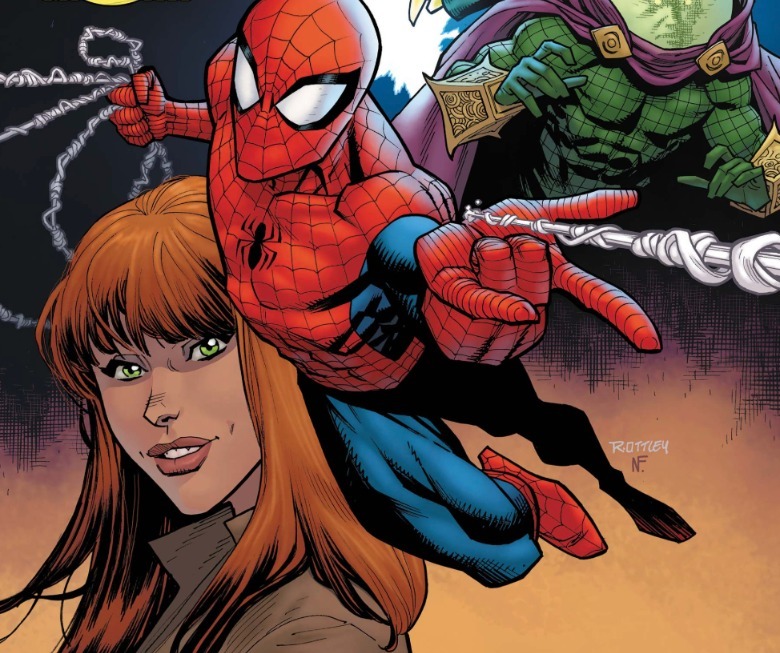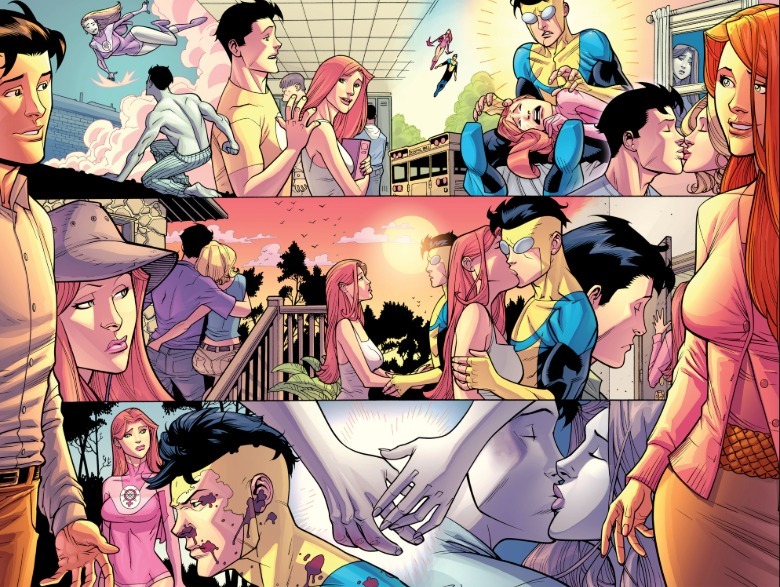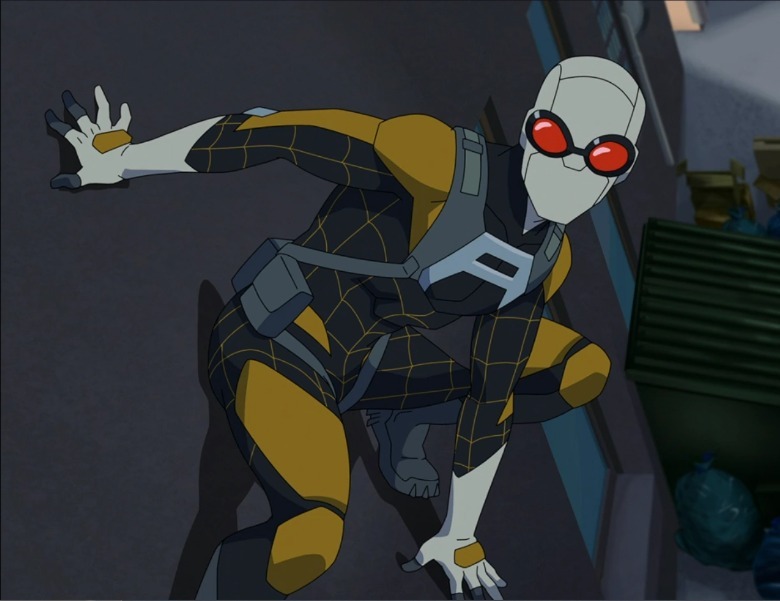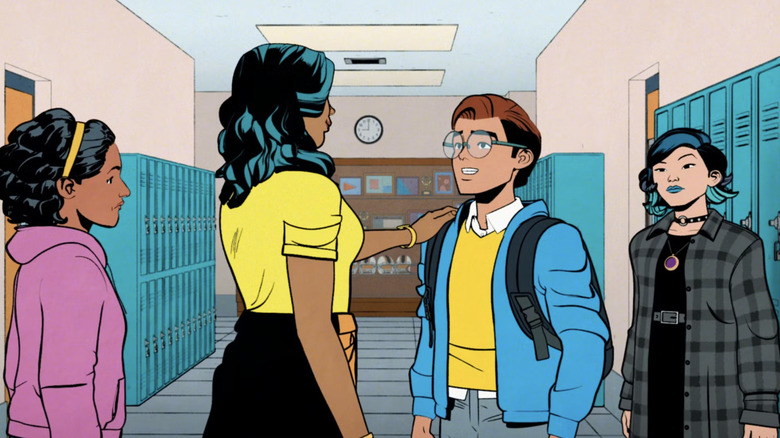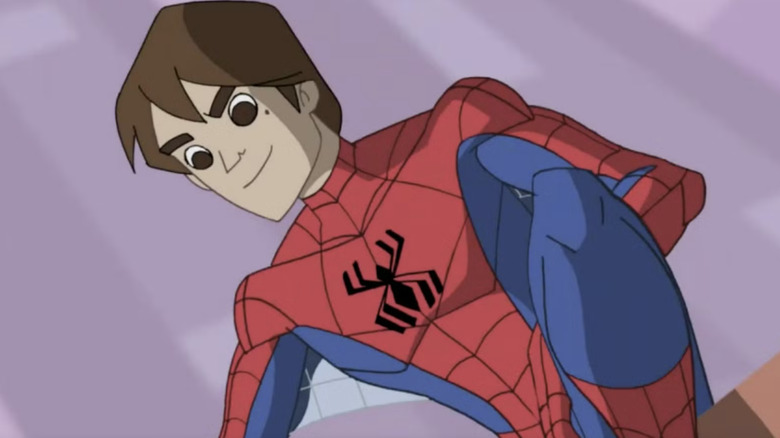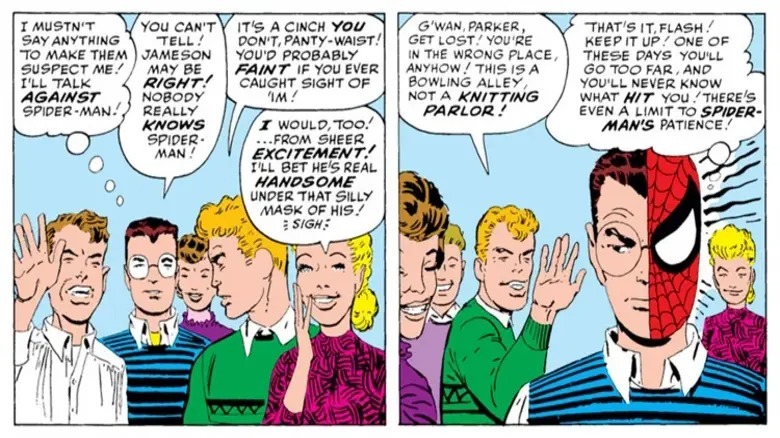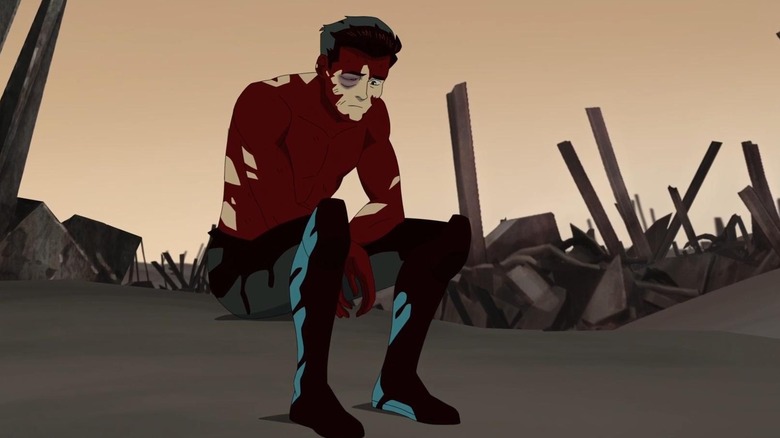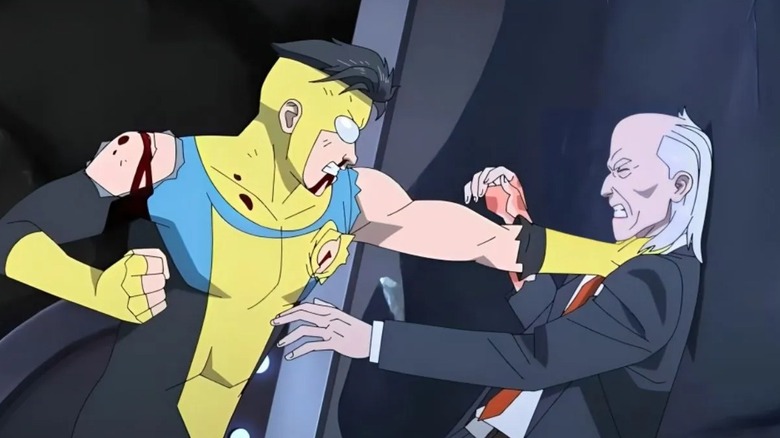What Your Friendly Neighborhood Spider-Man Can Learn From Invincible

This article contains spoilers for “Invincible.”
“Invincible” has returned for its third season on Prime Video, releasing concurrently with the debut season of “Your Friendly Neighborhood Spider-Man” on Disney+. With this new rival, does “Invincible” retain its title as “probably the best superhero series in the universe”? I’d say it does, and it comes down to how “Invincible” writes its lead character Mark Grayson (Steven Yeun).
It makes sense to compare these shows, because “Invincible,” both the series and the original comic by Robert Kirkman, Cory Walker, and Ryan Ottley, is basically Spider-Man plus “Dragon Ball.” (Viltrumites are more-or-less Saiyans. Omni-Man’s look evokes Superman but his character arc is closer to Vegeta.)
Though Peter Parker doesn’t have an alien warrior for a dad, he and Mark Grayson are quite similar people. Like Peter, Mark is a young man who gets superpowers but realizes being a superhero isn’t as fun as it looks; he constantly has to weigh his personal life against his career, there’s no easy way to save the world, and life’s curveballs and burdens often make him crack — but never break. He is Invincible, after all.
Atom Eve is a dead ringer for fellow redhead Mary Jane Watson — Look at how Ryan Ottley draws them both:
Invincible and Spider-Man have even met before in the comics; the show made a veiled reference to this in the season 2 finale, “I Thought You Were Stronger” — Mark gets sent to a dimension inhabited by the superhero “Agent Spider,” with a familiar voice (Josh Keaton) and powers.
During the “Invincible” season 3 three-episode premiere, Mark changed out to a darker new suit, ditching the yellow of the first Invincible costume with a new blue and black palette. This is akin to when Spider-Man got his black symbiote suit, especially since Mark too is losing some self-control this season. No alien parasite is influencing Invincible, though, just the pressures of his life. When it comes to portraying a flawed Peter Parker-esque hero, “Invincible” surpasses the actual Spider-Man cartoon it’s competing against.
Can Spider-Man be too friendly?
“Your Friendly Neighborhood Spider-Man” is taking its pointers from the Marvel Cinematic Universe, with a Peter Parker modeled after Tom Holland’s (though voiced by Hudson Thames). Those movies, faced with introducing Spider-Man late after the Avengers were established, played him up as naive and earnest to contrast him with the adult superheroes.
So yes, this Spider-Man sure is friendly. He’s chipper, even sheepish, with endless patience and no true flaws aside from typical Spidey tardiness and poor lying. Whenever Peter does try to excuse his lateness, cue some comically poor fibbing and a self-effacing Woody Allen comedy routine. The show even rewrites Spider-Man’s history so that Uncle Ben dies for reasons unrelated to Peter. This uproots his defining character arc of learning how with great power, there must also come great responsibility — which he can only learn by being irresponsible first.
YouTube-based critic captainmidnight, who pinpointed Peter’s characterization as the main flaw in “Your Friendly Neighborhood Spider-Man,” described him as “adorkable” and I heartily agree.
Case-in-point: in the series premiere, Peter learns that Lonnie Lincoln (Eugene Byrd) is dating his longtime crush Pearl (Cathy Ang). Peter is jealous for just a bit, then he actually meets Lonnie, realizes he’s a pretty nice guy and so stops pining after Pearl. I have mixed feelings on this. On one hand, it’s refreshing to get past love triangles can be hackneyed storytelling. On the other, it’s symptomatic of the show softening Peter’s edges; his attitude is too mature and nice for a teenage boy, whereas Peter has always been compelling because he’s a warts-and-all character. Peter Parker is a good guy, no doubt, but good doesn’t mean flawless (or spineless). He can be thoughtless, is often prone to self-pitying, and he’s got a short temper and cockiness kept in check by his guilt-driven responsibility.
Peter Parker should be a bit of a jerk
In the earliest Spider-Man stories penciled by Steve Ditko, Peter’s flaws are at their most egregious. You can tell he’s a wall-flower not only because he’s a nerd, but because he’s a hard guy to be around; sullen, withdrawn, and often on the verge of snapping.
One reason “The Spectacular Spider-Man” is still the best Spider-Man show is because it understands how flawed Peter can be. His problems aren’t just the universe cursing him with bad “Parker Luck,” they’re often of his own making too. But the strain he puts on his unmasked life, he keeps being Spider-Man because he knows other people need him. His being a superhero is a supreme act of selflessness that outweighs his sometimes rough edges.
Yet it’s when he is Spider-Man that Peter’s arrogance comes out. In “Your Friendly Neighborhood Spider-Man,” a lot of the humor feels like it’s directed at Peter when he should be the one directing it. The Spectacular Spider-Man’s enemies absolutely loathe him — he doesn’t just kick their asses, he ruthlessly heckles them all while he does it. (“I mock! I’m a mocker!”).
I love the Sam Raimi “Spider-Man” movies, and they largely capture the Stan Lee/Steve Ditko spirit quite well, but they’re also the root that leads to “Your Friendly Neighborhood Spider-Man.” Tobey Maguire’s Peter Parker doesn’t have the same dark side the comics did; he’s timid, even hapless, not prickly. The first “Spider-Man” even softens Peter’s actions; after defeating Bone Saw McGraw (Randy Savage) in a wrestling match, the ring owner cheats Peter out of his owed money. When the guy gets robbed moments later, Peter lets the robber escape (and go on to kill Uncle Ben) because he wants revenge. In the original “Amazing Fantasy” #15, Peter lets the robber go because he just couldn’t be bothered, proclaiming he’s “only looking out for number one” now.
With great power comes great responsibility in Invincible too
Like Spider-Man, Mark’s defining motivation comes from his father. (Well, father figure with Spider-Man, but same difference.) First, Mark wants to be Invincible so he can be a superhero as great as his dad. Then, Omni-Man shows his true colors as a conqueror, going on a city-leveling killing spree and grievously wounding Mark himself. Mark’s goal from then on out becomes not being like his father, even though the other Viltrumites are pushing him to embrace his “destiny” and Global Defense Agency director Cecil Stedman (Walton Goggins) lives in fear that Mark will listen. While you understand Mark, part of you also sides with Cecil; is our hero being too self-righteous for his own good?
The “Invincible” season 2 finale gets its title from the words Mark says in horror about himself from furiously beating Angstrom Levy (Sterling K. Brown) to death: “I thought you were stronger.” Sure, Levy was a villain threatening Mark’s family, but Mark still violated his own moral code by killing him. He didn’t just see the villain he could be reflected back at him, he felt it. To continue the Spider-Man comparison, this is Mark’s death of Gwen Stacy moment, or a defining failure to live up to the promise he made himself.
In the season 3 premiere of “Invincible,” the challenges aren’t letting up for Mark. He discovers Cecil is employing some villains Invincible himself brought in. Mark confronts Cecil, and neither will back down, so Cecil activates a sonic chip the GDA surgically put in Mark’s ear as a “failsafe.” It’s a painful, horrifying experience for Mark — but with the way he tears apart the GDA’s “Reanimen” cannon fodder, and then threatens to kill Cecil himself, you understand why Cecil’s afraid of him.
Invincible season 3 tests how much a hero can take
Mark’s foibles feel just as amplified this season because he now has to be a mentor to his little-half brother, and aspiring superhero, Oliver (Lincoln Bodin). Mix together typical immaturity, Oliver’s eagerness to be like his dad, and his poor grasp of what it’s like to be human (because he isn’t), and you’ve got a recipe for “Kid Omni-Man” to become like the original. Mark doesn’t just have to keep himself on the right path, he has to make sure Oliver stays there too. As Mark succinctly describes Eve (Gillian Jacobs) in episode 3, “You Want A Real Costume, Right?”, he has to figure out “how can I be a son, a brother, a boyfriend, and a superhero all at the same time?”
Like many other superhero stories, “Invincible” features a multiverse. Yet, it cleverly uses the “infinite possibilities” of parallel realities to underline the importance of its chosen setting. In most universes, Mark embraces his Viltrumite heritage and joins his father in conquering Earth. We’re following this Invincible because he’s a rare one who didn’t turn evil — but the most recent episodes showed us he still could. Our Mark still has many of the same qualities that his evil alternate selves did, it’s just that so far, his good ones have proven even stronger.
A hero’s greatest battles can and should be his internal ones, pitted against his worst self who sometimes even wins out. “Invincible” understands that, but I’m not sure “Your Friendly Neighborhood Spider-Man” does.
“Invincible” is streaming on Prime Video, with new episodes dropping on Thursdays. “Your Friendly Neighborhood Spider-Man” is streaming on Disney+.
Source link



